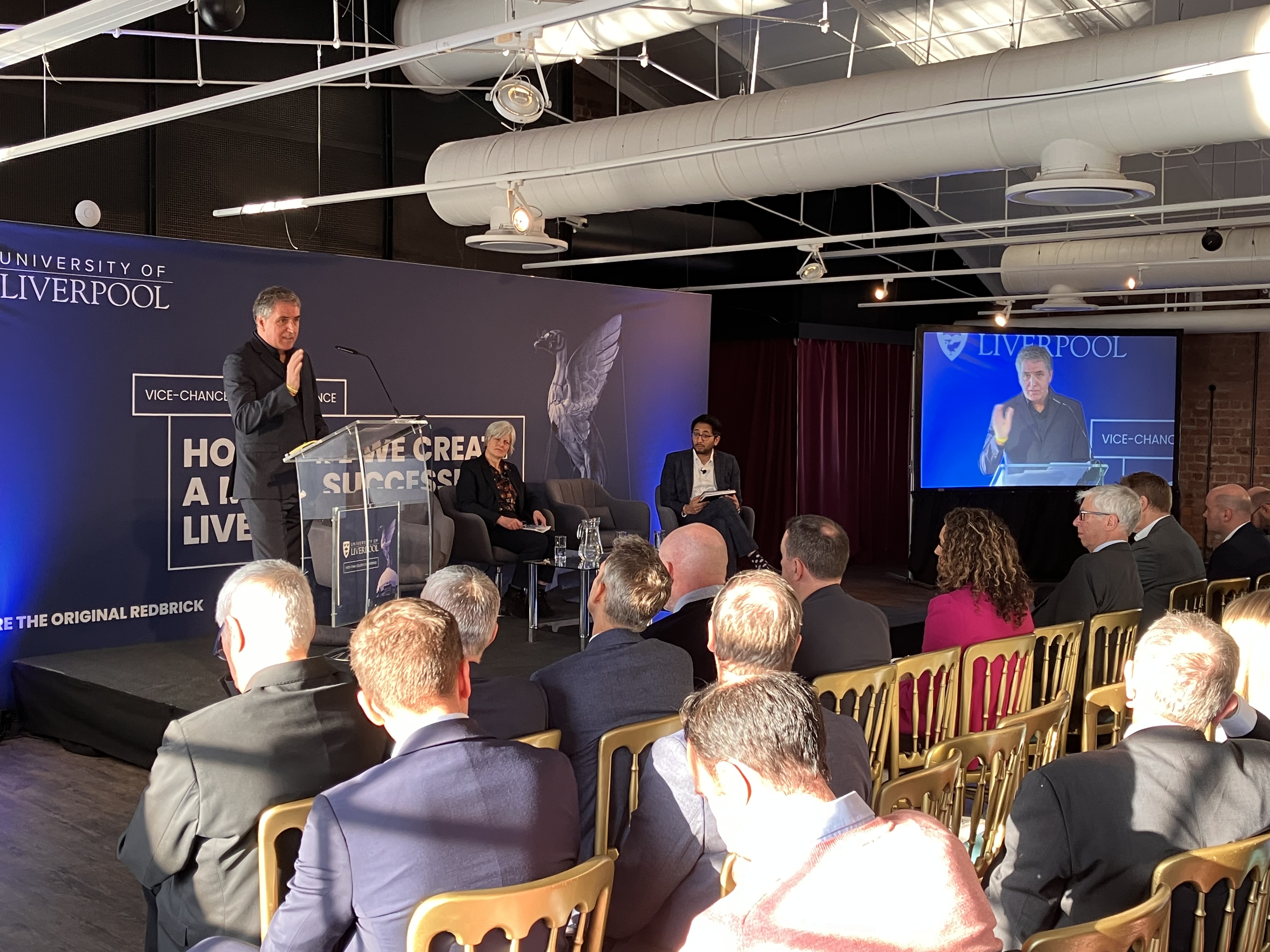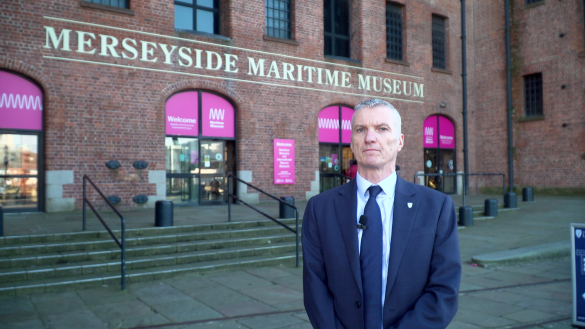New initiative seeks locals with business ideas to tackle health and care challenges
A groundbreaking initiative to tackle health and care inequalities in Liverpool City Region (LCR) communities launches today. Citizen First LCR will put power firmly in the hands of those with experience of health and care challenges on the ground.
Applications are now open to find eight inspiring LCR residents with a powerful business idea that tackles the health and care issues facing them and their communities. To remove barriers, they will receive a year’s Real Living Wage salary, seed funding, and comprehensive support, including a dedicated business advisor and cutting-edge tech support from the University of Liverpool.
Citizen First LCR is part of the University of Liverpool’s Civic HealthTech Innovation Zone (CHI-Zone), funded by the Liverpool City Region Life Sciences Innovation Zone Programme, and brings Public Life’s Citizen Incubator model to Liverpool for the first time. The model involves recruiting inspiring local people through a CV-less process and giving them a full-time salary and 12 months of leading support to turn their innovative ideas into businesses that tackle the social issues affecting them and their communities. Citizen First LCR is co-funded by the Fusion21 Foundation, the registered charity of national social enterprise Fusion21 Ltd, which specialises in efficient and impactful public sector procurement and delivers visible social value. It is also funded and supported by local housing associations Torus Foundation, Riverside, and Livv Housing Group.
Selected Citizen First LCR residents will benefit from the CHI-Zone’s expertise in health and care-tech development, gaining access to academic and technical support from the University of Liverpool. This hands-on approach means the successful applicants will be working on the ground from day one —applying data, AI, and technology to their business ideas while engaging directly with customers and communities. As their business model develops there will be opportunities to test assumptions with potential buyers, build the brand, integrate technology into their solution, and connect with investors. By the end of the year, it’s hoped they will secure investment to take the next big step in their venture.
The project delivery partners are looking for inspiring business ideas that offer new ways to tackle health and care challenges rooted in the experience of local communities. Recruitment will be completely CV-less with a focus on lived experience and entrepreneurial drive, not qualifications or work history. Neither do applicants need to be tech-savvy from the outset.
Recruitment is open from Wednesday 2 April to Sunday 4 May 2025 – events will be held in-person across the Liverpool City Region and online for those who would welcome an opportunity to meet the Citizen First team. Further information about the programme and how to apply can be found on the Public Life website at www.publiclife.org.uk/citizenfirst.
Professor Iain Buchan, W.H. Duncan Chair in Public Health Systems, Associate Pro Vice Chancellor for Innovation, and Director of Civic Health Innovation Labs (CHIL) said:
“CHI-Zone will mobilise data, technology, and deep collaboration with our residents to drive health and care innovations. We will support hidden entrepreneurs from local communities to pioneer solutions to challenges they’ve encountered with healthcare, social care or general health and wellbeing. Our entrepreneurs will have access to scientists, engineers, health and care experts, and established industry partners. This civic approach is core to our University’s work in breaking new ground in science and technology while responding to our communities’ needs. Those needs include the opportunities afforded by a thriving life science and digital economy in Liverpool City Region.”
James Green, CEO and Founder of Public Life, said:
“Liverpool City Region communities are full of inspiring residents with innovative ideas and the passion to drive change that comes from their own experiences. Yet, without financial security and the right opportunity, many are held back from becoming the entrepreneurs we all need if we are to tackle important health and care challenges impacting local people. Citizen First LCR is on a mission to change that.”
Jo Hannan, Head of Fusion21 Foundation said:
“Citizen First LCR is a game-changing opportunity that removes financial barriers and provides the right support for local innovators to turn their ideas into impactful outcomes. Our Foundation is proud to support a programme that puts power back into the hands of communities and fosters real, lasting change in health and care.”
Councillor Liam Robinson, Liverpool City Region Combined Authority Cabinet Member for innovation, said:
“We know that local people know their own areas best and are bursting with creative ideas about how to solve issues in their communities. We’re delighted to support Citizen First LCR which will enable people with extraordinary and innovative ideas to make a huge difference to their local area.”
The Liverpool City Region Life Sciences Innovation Zone Programme forms part of the Government’s national Investment Zone Programme, positioning the city region as a powerhouse for health and life sciences innovation.










